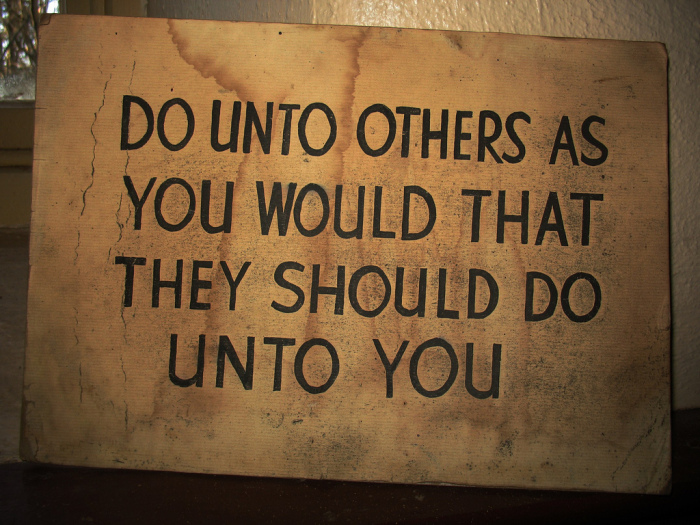The Lord had commanded us to love our enemies, and to do good to those that sin against us. That from this, priests might not be obliged to share the sacraments with those not sharing the faith, if he checked any thought saying, "Give not that which is holy to the dogs;" as much as to say, I have bid you love your enemies, and do them good out of your temporal goods, not out of My spiritual goods, without distinction. For they are your brethren by nature but not by faith, and God gives the good things of this life equally to the worthy and the unworthy, but not so spiritual graces.
The Lord had promised that He would give good things to them that ask Him. But that He may answer His petitioners, let us also answer ours. For they that beg are in everything, outside of having substance, equal to those of whom they beg. What face can you have of making request to your God, when you do not acknowledge your equal? This is that is said in Proverbs, "Whoever stops his ear to the cry of the poor, he shall cry and shall not be heard." What we ought to bestow on our neighbor when he asks of us, that we ourselves may be heard of God, we may judge by what we would have others bestow upon us; therefore He says,"Do to others whatever you would."
Seeing Jesus declare, "My yoke is pleasant, and my burden light," how is it that He says here that the way is straight and narrow? Even here He teaches that it is light and pleasant; for here is a way and a gate as that other, which is called the wide and broad, has also a way and a gate. Of these nothing is to remain; but all pass away. But to pass through toil and sweat, and to arrive at a good end, namely life, is sufficient solace to those who undergo these struggles. For if sailors can make light of storms and soldiers of wounds in hope of perishable rewards, much more when Heaven lies before, and rewards immortal, will none look to the impending dangers. Moreover the very circumstance that He calls it straight contributes to make it easy; by this He warned them to be always watching; this the Lord speaks to rouse our desires. He who strives in a combat, if he sees the prince admiring the efforts of the combatants, gets greater heart. Let us not be sad when many sorrows befall us here, for the way is straight, but not the city; therefore neither need we look for rest here, nor expect anything of sorrow there. When Jesus says, "Few there be that find it," He points to the sluggishness of the many, and instructs His hearers not to look to the prosperity of the many, but to the toils of the few.
Reference:
Opus imperfectum in Mattheum (Pseudo-Chrysostom)
Sermon 11 on the New Testament (St. Augustine)
Homily 23 on Matthew (St. John Chrysostom)
